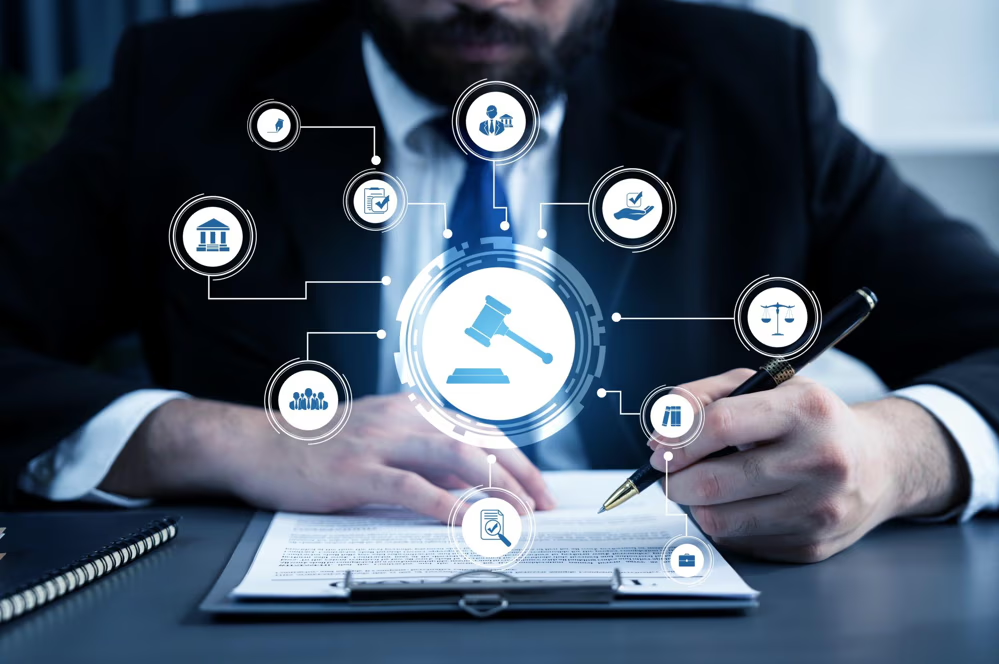
Digital Evidence in Modern Litigation
A comprehensive overview of how digital information is transforming court cases in Australia
In today’s digital age, evidence is no longer confined to paper documents and eyewitness accounts. Emails, phone records, social media activity and video footage now play a critical role in both civil and criminal cases. For individuals and businesses involved in legal disputes, understanding how digital evidence works is crucial.
Whether you’re facing a business disagreement, criminal allegation or family law matter, partnering with a skilled legal professional who understands technology and the law is more important than ever.
What Is Digital Evidence?
Digital evidence refers to any information stored or transmitted electronically that may be used in court. Examples include:
- Emails and email headers
- Text messages and call history
- CCTV footage and video recordings
- Website logs and online activity
- Electronic documents and metadata
- GPS data and mobile tracking
- Social media posts, comments and direct messages
- Files stored on phones, computers or cloud servers
As our personal and professional lives increasingly move online, these records have become key in confirming timelines, proving intent and uncovering inconsistencies in claims.
Is Digital Evidence Admissible in Court?
In Queensland and across Australia, digital evidence is admissible in legal proceedings if it meets specific legal criteria. The evidence must be:
- Relevant to the matter at hand
- Authentic, meaning it is verifiably genuine
- Reliable, collected according to lawful procedures
- Preserved with a documented chain of custody
If any of these standards are not met, the opposing party may challenge the evidence. A litigation lawyer or legal expert with experience in digital matters can help ensure everything is handled correctly from the outset.
Common Challenges with Digital Evidence
While digital material can be compelling in court, it also presents several challenges:
- Data can be edited, deleted or fabricated
- Privacy laws place limits on surveillance and data access
- Establishing authenticity often requires digital forensic analysis
- Some parties may delay or deny access to important data
- Large volumes of digital files can make legal discovery time intensive and costly
Because of this, many law firms now collaborate with IT experts and forensic analysts to manage and present digital information effectively.
How Digital Evidence Is Used in Different Cases
Digital information supports a wide range of legal cases across Queensland. For example:
- Business disputes: Emails, electronic contracts and internal communications are often used to clarify agreements and uncover breaches
- Family law: Text messages, photos and social media posts can support or challenge parenting arrangements and misconduct allegations
- Criminal cases: CCTV footage, mobile location data and messaging apps often form part of the prosecution or defence strategy
Queensland courts increasingly rely on eDiscovery tools, which use artificial intelligence to quickly scan vast amounts of digital material and flag key documents. This speeds up litigation and can significantly reduce legal expenses for clients.
Future Trends in Legal Technology
Technology is reshaping the Australian legal system. Innovations such as blockchain, smart contracts and advanced data verification tools are emerging in litigation. Businesses and individuals alike should ensure their digital footprints are legally sound and well organised.
Get Legal Support That Understands the Digital Landscape
At Atlas Lawyers, our Gold Coast legal team works at the intersection of law and technology. We help clients gather digital evidence lawfully, protect their data and present it in a compelling and admissible manner.
Whether you need a business dispute lawyer, a criminal defence professional, or a family law expert, we are equipped to guide you through the complexities of digital litigation.
